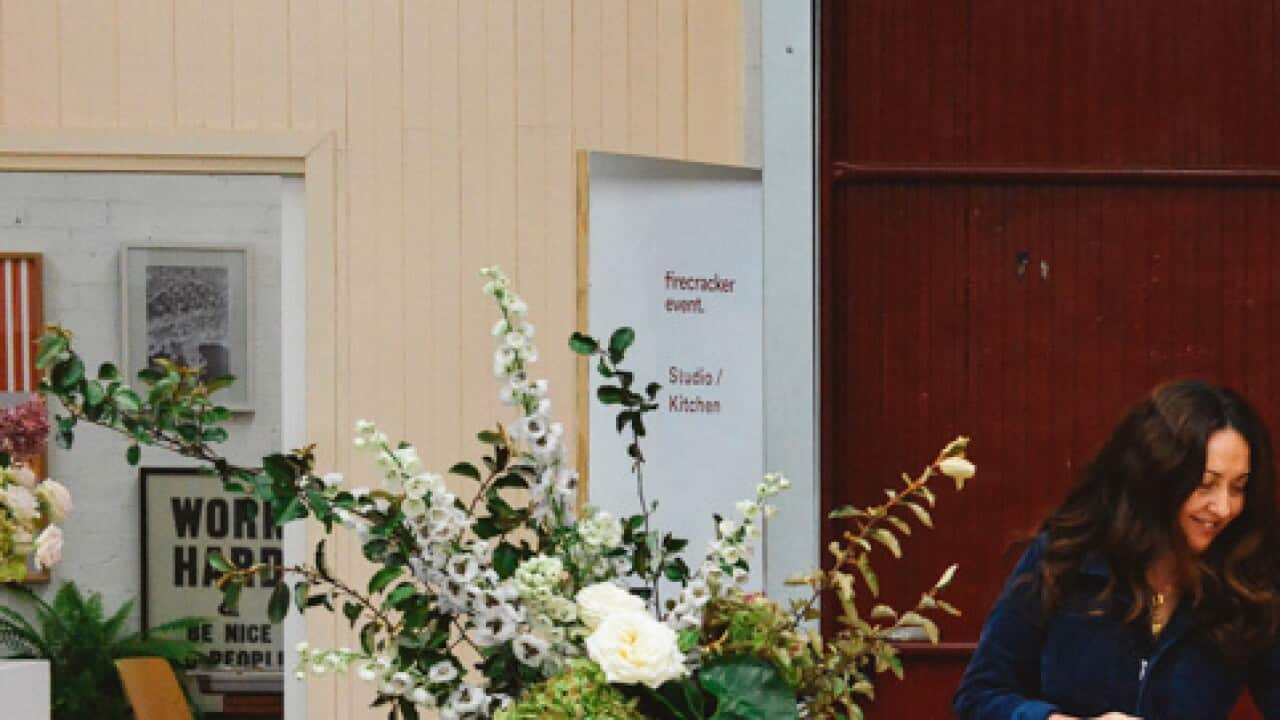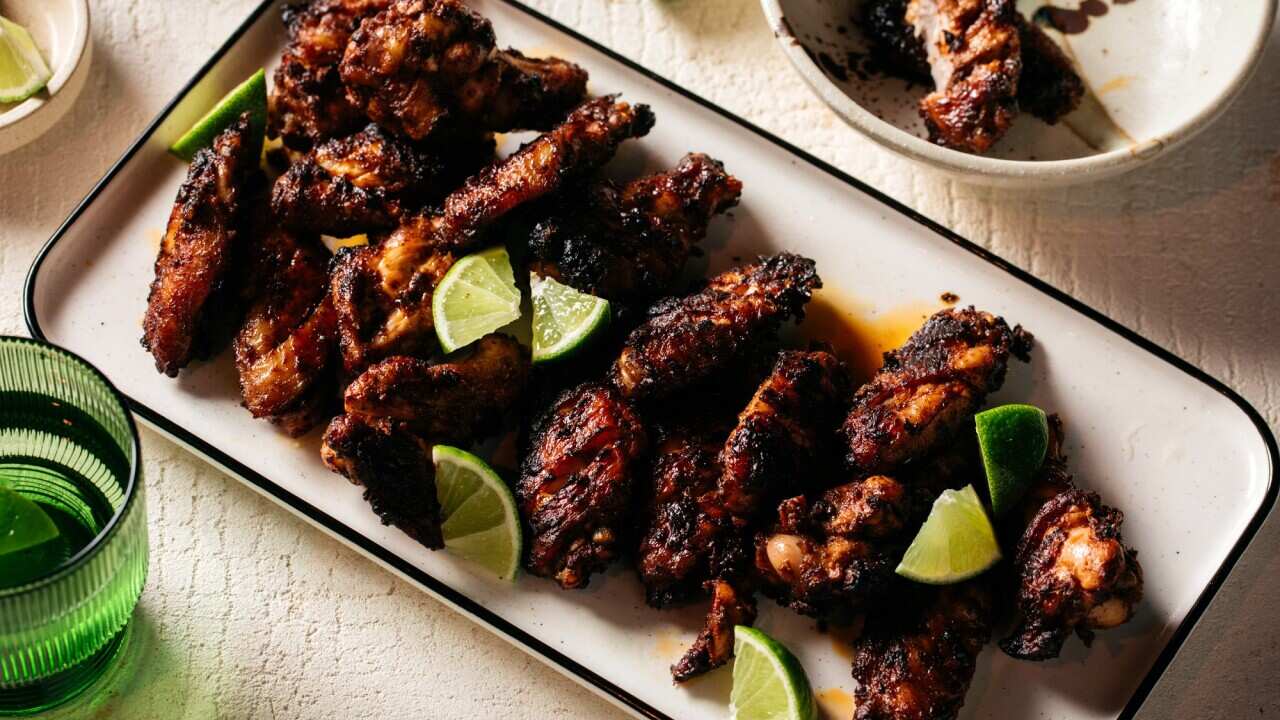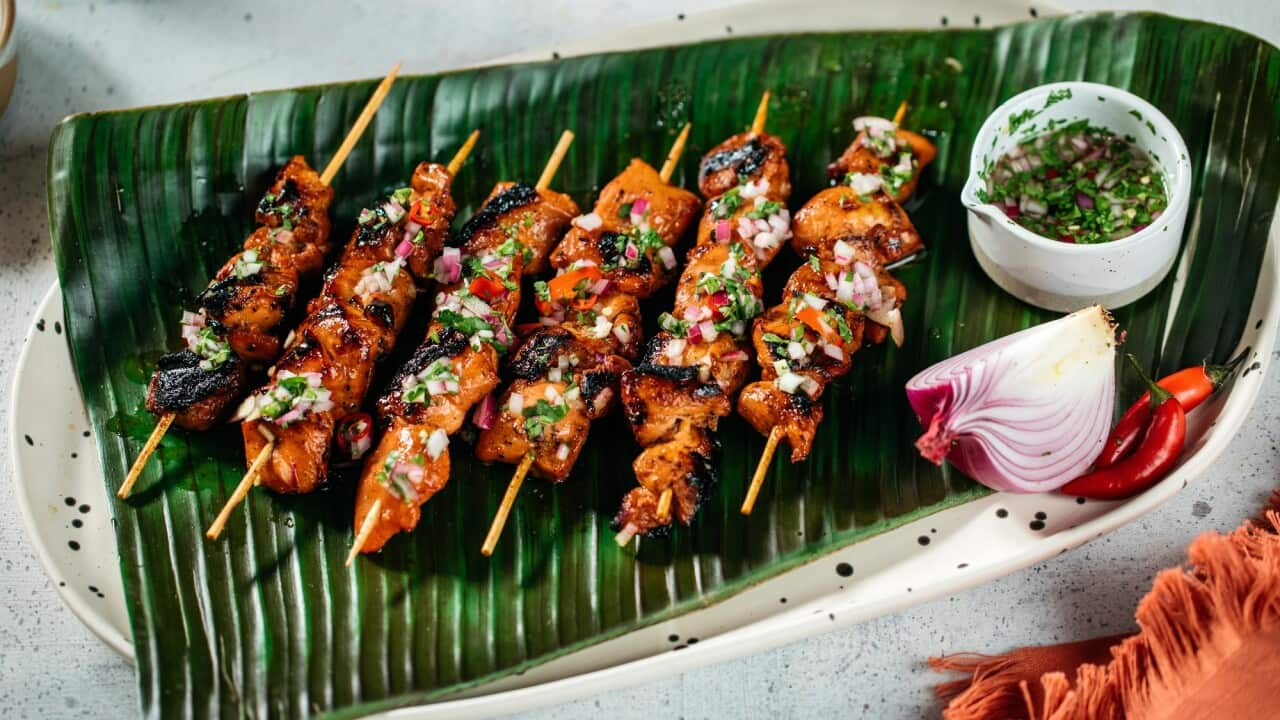The dinner parties that linger in my memory correspond with defining stages of life.
In my twenties, convening around sharehouse tables over makeshift curries reminded me that sharing food with the family you make can be an antidote to romantic and professional anxiety.
When I moved into my first apartment, solo, cooking elaborate six-hour roasts and sides that required multiple trips to the market were an expression of who I was trying to be as a young woman – and what I wanted to feed people I loved.
Last Saturday, my boyfriend and I met our friends in a “room” on a video-chatting app called . From apartments on opposite ends of the city, we ordered pizza to eat together and shared a bottle of red wine. Life under isolation has meant shapeless days and a future with contours that are still uncertain. But there’s still power in the ritual of eating together, even if that eating happens through the screen of your smartphone or laptop.
Amanda Douehi has always believed that sharing food with friends and strangers can breed a powerful sense of camaraderie. It can also open up a space for support and commiseration during troubled times. In March, Douehi and her friend Brian Lim, started co-hosting a series of virtual dinner parties, held over . These dinners, Douehi tells SBS, also create community – especially for those in the pair’s wider circle who are dining alone.
“Brian and I were talking about [the fact] that so many people were now eating by themselves. My background is Lebanese, and food is such a big part of my culture – we break bread together – and it was about [recreating] that online,” she says. “I live with my family at the moment and have people to share dinner with, but not everyone is in that position. Guests don’t know who else we’ve invited to the table.”
A good dinner party often brings different people in the same room together. Sometimes, this can create a new spirit of intimacy.
“During our dinner on Tuesday, there were people who shared their different experiences with , which was interesting for us who had never experienced a pandemic. So many of the conversations we’ve had have been so intelligent and insightful,” she says. “We've also found that, sometimes, people don’t want to talk to their close family and friends about their current experience, because they have to be strong for everyone. They can say ‘my husband has lost his job’ and 'I’m worried about money' and they feel comfortable sharing with us because we are not going to carry it. There’s almost this sense of borrowed trust.”
My background is Lebanese, and food is such a big part of my culture – we break bread together – and it was about [recreating] that online.
Then, there’s the matter of nailing the menu.
“At our first dinner, everybody ate something different – I was having burgers, Brian was having fried rice, other people were eating rice and vegetables,” says Douehi. “People have different personal circumstances, so we decided against setting a menu or asking everyone to order in from the same place. We don’t want to make our guests eat something that is inaccessible to them.”
“I feel like everyone doesn’t just bring their meal, they bring their own comfort food to the table,” adds Lim. “It’s about [feeling] like I am in a safe space.”
Of course, virtual parties don’t have to involve dinner. In an age where we’re being asked to commemorate birthdays, anniversaries and special occasions without the physical presence of loved ones, they can be as simple as showing up online to enjoy a glass of wine in good company or cut a slice of cake.
Gill Walker, who’s 56 and based in Sydney recently organised a virtual birthday party for her 84-year-old father who lives in the United Kingdom.
“He is self-isolating and alone and although he is strong, we were concerned about his mental health,” she says. “There were 20 people including partners and kids and the invite said BYO cake – everyone shared their cakes with their webcams.”
There were 20 people including partners and kids and the invite said BYO cake – everyone shared their cakes with their webcams.
Sometimes, what you eat together is less important than the act of sharing the experience.
“My father was gobsmacked that you could do these kinds of things,” says Walker. “He was buzzing for the next 24 hours.”














